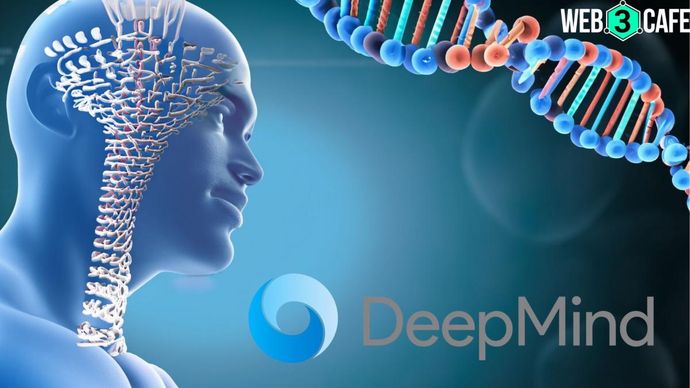Google DeepMind unveils 'AlphaMissense', an AI solution for genetic mutation predictions
AlphaMissense builds upon DeepMind's AlphaFold tool, which predicts protein structures. It also leverages a vast amount of biological evidence about mutations in humans and primates to determine the pathogenic or benign nature of genetic variants.

Highlights
- Google’s DeepMind introduces an AI tool named ‘AlphaMissense’
- AlphaMissense will predict harmful genetic mutations in humans
- It builds upon DeepMind's AlphaFold tool, which predicts protein structures
In a recent development, Google DeepMind, the AI branch of Google, has unveiled an AI tool called ‘AlphaMissense.’ This tool employs artificial intelligence to predict whether mutations in human genes are likely to be harmful. This innovation could accelerate the diagnosis of diseases caused by genetic variants and has the potential to transform the field of genomics.
AlphaMissense: A game-changer in genomics
AlphaMissense is designed to focus on a specific type of genetic mutation known as ‘missense’ mutations. These mutations involve changes in a single letter of the genetic code, and humans typically have around 9,000 of them in their genome. Some of these mutations are harmless, while others can lead to serious diseases like cystic fibrosis and cancer or affect brain development.
However, out of the four million observed missense mutations in humans, only two percent have been classified as either disease-causing or benign, leaving a vast number of mutations with uncertain outcomes.
A solution to the complexity of genetic research
One of the critical challenges in genetic research has been the labour-intensive and costly nature of experiments to identify disease-causing mutations. AlphaMissense offers a solution by providing AI predictions that give researchers a preview of results for thousands of proteins simultaneously. This capability helps prioritise resources and accelerates complex studies.
While the tool is not intended for clinical diagnosis alone, it promises to increase the diagnosis rate of rare diseases and aid in the discovery of new disease-causing genes.
AlphaMissense enhances genetic variant predictions
AlphaMissense builds upon DeepMind's AlphaFold tool, which predicts protein structures. It also leverages a vast amount of biological evidence about mutations in humans and primates to determine the pathogenic or benign nature of genetic variants.
DeepMind has generously made the tool freely available to the scientific community, and its predictions will be incorporated into the widely-used Ensembl Variant Effect Predictor.
Validation & future prospects
The UK government's Genomics England conducted tests to validate AlphaMissense's predictions against their extensive records of genetic variants causing rare diseases. The results were impressive, according to Ellen Thomas, deputy chief medical officer.
She envisions AlphaMissense being used in healthcare as a co-pilot for clinical scientists, assisting in the identification of variants they should focus on, thereby enhancing efficiency.
Limitations
AlphaMissense, despite its remarkable capabilities, has limitations. It provides general predictions of pathogenicity without revealing the biophysical nature of a variant's effects. Researchers anticipate that as the tool evolves, it may offer deeper insights into the workings of genetic mutations.
While it may not replace clinical diagnosis, its potential to aid rare disease research and uncover new disease-causing genes holds great promise for advancing medical science and improving the lives of individuals with genetic conditions.
